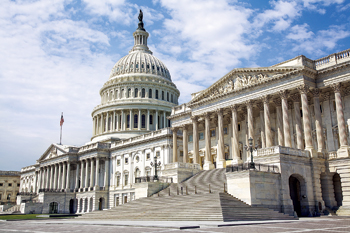Advertisement
Grab your lab coat. Let's get started
Welcome!
Welcome!
Create an account below to get 6 C&EN articles per month, receive newsletters and more - all free.
It seems this is your first time logging in online. Please enter the following information to continue.
As an ACS member you automatically get access to this site. All we need is few more details to create your reading experience.
Not you? Sign in with a different account.
Not you? Sign in with a different account.
ERROR 1
ERROR 1
ERROR 2
ERROR 2
ERROR 2
ERROR 2
ERROR 2
Password and Confirm password must match.
If you have an ACS member number, please enter it here so we can link this account to your membership. (optional)
ERROR 2
ACS values your privacy. By submitting your information, you are gaining access to C&EN and subscribing to our weekly newsletter. We use the information you provide to make your reading experience better, and we will never sell your data to third party members.
Policy
Legislative Malfeasance
Partisanship and infighting left little room this year for passing legislation
by David J. Hanson
December 19, 2011
| A version of this story appeared in
Volume 89, Issue 51
The first session of the 112th Congress of the United States has been the most partisan, argumentative, and ineffective of any session in memory. As a result, only a few pieces of legislation of any consequence became law in 2011, particularly with respect to science and technology.
Much of the stalemate is because party control of Congress is split. The Republicans became the majority party in the House of Representatives in 2010, when many new and quite conservative members were elected to office. But the Senate remained under Democratic Party control after the election. The difference in political ideologies of the parties quickly became more important than passing any legislation. Here is a summary of this year’s actions.
As has become typical, the fight to pass a budget for the federal government was a drawn-out process. The final budget for fiscal 2011, which started on Oct. 1, 2010, did not pass until well into 2011. Although this is Congress’ primary function, it was the 15th year in a row that the legislative body failed to meet its statutory deadline and carried the process into the next year. Bitter political arguments over how to cut federal spending or increase taxes went nowhere as agencies struggled to carry on programs without a clue as to how much money they might get. Congress finally approved an omnibus spending package for fiscal 2011 in mid-April—six months late and a full two months after the 2012 budget had been proposed.
Thus far, the 2012 budget cycle appears to be faring better, with funding for several key science agencies—including the National Science Foundation, the National Institute of Standards & Technology, and the National Aeronautics & Space Administration—finalized in November as part of a small funding package. Budgets for the remaining parts of the government are expected to be completed soon in a large omnibus spending measure.
In general, science budgets are holding their own. They’ve managed to avoid significant cuts, a hopeful sign as Congress tries to get serious about making major spending cuts over the next 10 years as part of its effort to reduce the nation’s fiscal deficit.
Beyond the budget drama, there were a few notable congressional accomplishments in 2011, such as the approval of international trade pacts with South Korea, Colombia, and Panama. The pacts were heartily endorsed by the chemical industry, which has paid hundreds of millions of dollars in trade tariffs to these nations over the past several years. Tariffs between South Korea and the U.S. will be eliminated over the next three years. Tariffs with Colombia and Panama will be phased out over 10 years.
A patent reform bill was also signed into law this September. The America Invents Act is supposed to reduce the backlog of patent applications and provide applicants with a simpler, more transparent path to patent protection. A major change switches the U.S. from a first-to-invent system to one that awards patents to the first inventor to file, the system that is used throughout Europe and Asia.
Two matters not resolved this year are the R&D tax credit and security rules for chemical facilities. The tax credit, which Congress refuses to make permanent and thus has to reapprove every year, is a major plus for the chemical and pharmaceutical industries. It will expire on Dec. 31—the 15th time since 1981—if Congress fails to include an extension somewhere in the appropriations legislation under consideration.
The Chemical Facility Anti-Terrorism Standards also must be renewed as Congress continues to argue over whether the existing standards are tough enough to keep terrorists from blowing up chemical plants. Several bills were introduced to extend the standards for up to seven years, but the fiscal 2012 funding for the standards will expire this month, unless Congress can agree to fund it for at least another year.
Congressional hearings were held this year on other issues important to the chemical enterprise. The Safe Chemicals Act, a measure that is supposed to modernize the 1976 Toxic Substances Control Act, got a plug at a May hearing with an appearance by actress and activist Jessica Alba. Despite this star showing, and even with industry acknowledgment that TSCA needs updating, the bill as it is written has little chance of getting passed amid much partisan wrangling.
Concern over the U.S. supply of critical minerals, especially rare-earth metals, was the topic of several hearings. These materials, usually meant to include the lanthanides plus scandium and yttrium, are scarce mostly because of geopolitical shenanigans by China, whose actions have led to growing cries by manufacturers that use rare earths for electronic components. Although a number of bills seek to increase U.S. production of these metals, the only hope for future passage is for one to get attached to a more important bill.
Another fight between the parties this year has been over the impact of federal regulations, and the Environmental Protection Agency has become the main target. Republican leaders have taken the view that EPA produces “job-killing regulations.” Most attacked have been air pollution rules, including efforts to regulate mercury and soot emissions from power plants and the control of air pollution that crosses state lines. Several bills passed the House this year to stop EPA from promulgating air pollution rules, but these bills did not move forward in the Senate.
In summary, 2011 was a mixed bag. We can hope that next year will be more productive. Unfortunately, if the past teaches us anything, it’s that congressional posturing and stubbornness in 2012—a presidential election year—will be even worse.





Join the conversation
Contact the reporter
Submit a Letter to the Editor for publication
Engage with us on Twitter